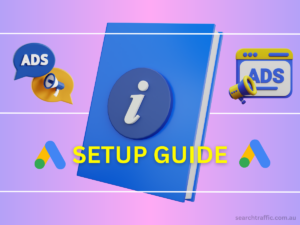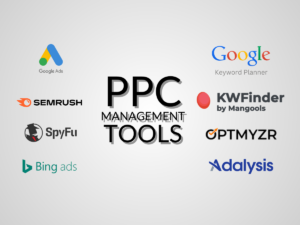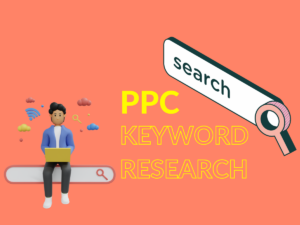Table of Contents
Introduction
The Power of Pay-Per-Click Advertising
Welcome to the fast-paced world of digital marketing, where Pay-Per-Click (PPC) advertising is a game changer. It’s all about reaching your target audience quickly and accurately. But to really make the most of PPC, you need expert management. That’s where Google Ads management services come in.
Understanding Google Ads Management Pricing
Pricing for these services can be as varied as the strategies used in Google Ads itself. In Australia’s competitive digital market, knowing how these pricing models work is key. Why? Because it helps you align your online marketing efforts with your budget and goals.
What to Expect in This Post
In this post, we’ll dive into the three main Google Ads management pricing models:
We’ll explore each model, helping you understand which one might be the best fit for your business. Let’s get started!
Welcome to the fast-paced world of digital marketing, where Pay-Per-Click (PPC) advertising is a game changer. It’s all about reaching your target audience quickly and accurately. But to really make the most of PPC, you need expert management. That’s where Google Ads management services come in.
Understanding Google Ads Management Pricing
Pricing for these services can be as varied as the strategies used in Google Ads itself. In Australia’s competitive digital market, knowing how these pricing models work is key. Why? Because it helps you align your online marketing efforts with your budget and goals.
What to Expect in This Post
In this post, we’ll dive into the three main Google Ads management pricing models:
We’ll explore each model, helping you understand which one might be the best fit for your business. Let’s get started!
1. Flat Fee Pricing
A Straightforward Approach to Google Ads
What is Flat Fee Pricing?
Flat fee pricing in Google Ads management is like a subscription model – you pay a set fee, either monthly or annually, regardless of your campaign’s size or ad spend. This model is a hallmark of simplicity and predictability, offering a straightforward approach to managing your Google Ads costs.
Why Choose Flat Fee?
Considerations:
Best For:
Why Choose Flat Fee?
- Predictable Budgeting: This model is a boon for financial planning. You can set your marketing budget with confidence, knowing that the Google Ads management cost won’t fluctuate month to month.
- Consistency: It’s ideal for businesses that have stable and predictable advertising strategies. If your campaign needs don’t vary much throughout the year, this model offers a hassle-free approach to managing those expenses.
Considerations:
- Scale: However, it’s worth noting that if your campaign needs are dynamic, with frequent ups and downs, this model might not offer the best value.
- Incentive: Another aspect to consider is the agency’s motivation. Since the fee isn’t tied to performance or ad spend, there’s a risk that the agency might not push as hard to continually optimise and improve your campaigns.
Best For:
- Businesses with stable, predictable marketing strategies and those who value budget certainty will find this model most appealing.
2. Percentage of Ad Spend
Flexibility as Your Campaign Grows
How This Model Works:
This model ties the agency’s fee directly to your Google Ads campaign’s budget. As your ad spend increases or decreases, the agency’s fee adjusts accordingly. It’s a dynamic model that mirrors the ebbs and flows of your marketing efforts.
Benefits:
Drawbacks:
Ideal For:
Benefits:
- Aligned Interests: The agency’s revenue is directly linked to your campaign’s budget, incentivising them to manage your campaigns effectively and efficiently.
- Scalability: This model shines in its flexibility. If your campaign performance justifies an increase in ad spend, the agency’s fee scales up. Conversely, during quieter periods when ad spend is reduced, so is the cost of management.
Drawbacks:
- Cost: For extensive campaigns with a high ad spend, this model can become quite expensive. It’s important to balance the agency’s fee against the potential returns from your campaign.
- Monitoring: It requires vigilant oversight from your end. You need to ensure that increases in ad spend are justified by corresponding improvements in campaign performance.
Ideal For:
- Businesses seeking a pricing model that aligns closely with their campaign size and is flexible enough to adapt to changing needs and budgets will benefit most from this model.
3. Performance-Based Pricing
Paying for Tangible Results
Understanding Performance-Based Pricing:
This model is the epitome of results-driven pricing. You agree to pay the agency based on specific performance outcomes like click-through rates, conversions, sales, or return on investment. It’s a model that puts a premium on tangible results, aligning payment with the success of your Google Ads campaigns.
Why It’s Appealing:
Points to Consider:
Best Suited For:
Why It’s Appealing:
- Results-Focused: Agencies are highly motivated to fine-tune and continually improve your campaigns. Their compensation depends on achieving the agreed-upon performance metrics.
- Alignment: This model creates a partnership where the agency’s goals are directly tied to the success of your Google Ads campaigns. It fosters a collaborative relationship focused on achieving common objectives.
Points to Consider:
- Complex Metrics: Setting up and agreeing on performance metrics can be a detailed and nuanced process. It requires clear communication and a mutual understanding of what constitutes success.
- Campaign Type: This pricing is less suited for campaigns aimed at long-term brand building or where immediate, direct conversions are not the main focus.
Best Suited For:
- Businesses with specific, measurable goals, especially those focused on direct response or sales, will find this model particularly advantageous.
How to Choose the Right PPC Agency
Understand Your Goals and Needs
Experience and Expertise
Strategy and Approach
Communication and Reporting
Pricing Structure
Reviews and Testimonials
Cultural Fit
Additional Services
- Define your PPC campaign goals (e.g., increase sales, brand awareness, lead generation).
- Determine the size and complexity of your campaigns.
Experience and Expertise
- Seek an agency with a proven track record in PPC management.
- Ensure they have experience in your industry or with similar businesses.
- Look for certifications like Google Ads or Bing Ads accreditation.
Strategy and Approach
- Assess their approach to planning, executing, and optimizing PPC campaigns.
- Ensure they use data-driven strategies and are updated with PPC trends.
Communication and Reporting
- Choose an agency that values communication and transparency.
- Expect regular, detailed reports on campaign performance.
- Check their availability for discussions and feedback.
Pricing Structure
- Understand their fee structure (flat fee, percentage of ad spend, performance-based fees).
- Ensure there are no hidden costs and it fits your budget.
Reviews and Testimonials
- Read client reviews and testimonials.
- Look for relevant case studies or success stories.
Cultural Fit
- Consider the agency’s work culture and if it aligns with your values.
- Effective collaboration depends on shared values and communication styles.
Additional Services
- Check if they offer additional services like SEO, social media marketing, or content creation.
- A full-service agency can provide integrated digital marketing strategies.








